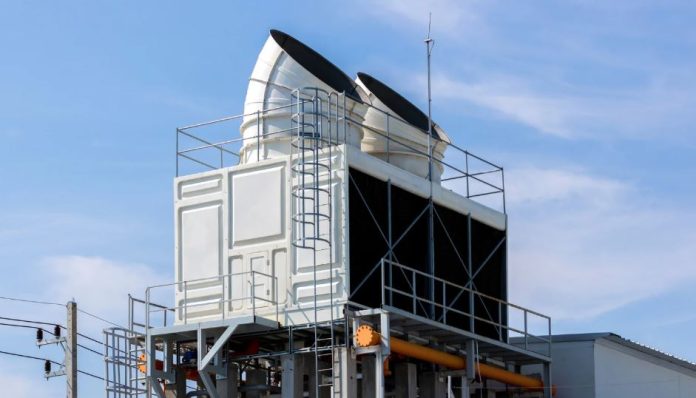Table of Contents
Choosing the right chiller unit can make a real difference to how your business operates. Whether you’re cooling equipment, maintaining product quality, or keeping staff comfortable, a reliable chiller system is key to smooth day-to-day running.
But with so many types available, it’s easy to feel overwhelmed. In this guide, we’ll walk you through the main chiller unit options, their uses, and how to choose one that suits your business environment.
Understanding the Role of a Chiller
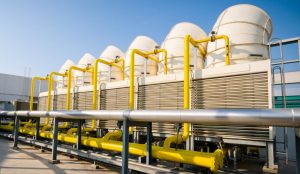
A chiller is a type of refrigeration system that removes heat from a process or space. It works by circulating a coolant, usually water or a glycol mixture, through a closed loop.
The coolant absorbs heat, which is then discharged through a condenser unit. These systems are often used in industries like manufacturing, food processing, pharmaceuticals, and even commercial offices.
The right chiller can help with:
- Maintaining stable temperatures for machinery or products
- Reducing wear and tear on equipment
- Supporting temperature-controlled environments
- Lowering operating temperatures to improve safety
Air-Cooled vs Water-Cooled Chillers
One of the first decisions you’ll need to make is whether to go with an air-cooled or water-cooled chiller.
Air-Cooled Chillers
Air-cooled chillers use ambient air to remove heat. They’re ideal for locations where water use is restricted or where ease of installation is a priority.
These systems are often placed outside and are popular for commercial buildings, retail units, and small industrial applications.
Advantages:
- Easy to install and relocate
- Lower maintenance requirements
- Suitable for environments with limited water supply
Water-Cooled Chillers
Water-cooled chillers use water from a cooling tower to transfer heat. They’re typically more efficient in warmer climates and work well for large-scale or high-load applications, such as factories, data centres, and manufacturing plants.
Advantages:
- Better suited for high-capacity cooling
- Usually quieter than air-cooled units
- Can be more energy-efficient under certain conditions
Glycol Chillers for Temperature-Sensitive Applications
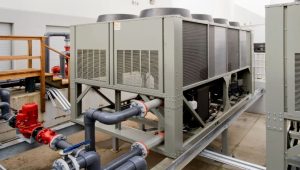
If you’re working in the food and beverage industry, particularly with brewing, distilling, or dairy production, a glycol chiller might be your best bet.
These chillers use a mix of water and glycol (a type of antifreeze) to maintain low and stable temperatures, even in freezing conditions.
They’re also widely used in plastic injection moulding and pharmaceutical production, where precise temperature control is essential to product quality.
Portable and Mini Chillers: Flexible Options for Small Spaces
Not every business needs a large fixed chiller. For smaller setups, temporary installations, or businesses with shifting needs, mini chillers or portable chillers are a practical solution.
- Mini chillers are compact and ideal for small rooms or low-volume operations.
- Portable chillers come with wheels and can be moved around as needed, making them a good choice for short-term projects or backup cooling.
These are commonly used in laboratories, dental surgeries, server rooms, or any environment where cooling needs are limited but still important.
Industrial Chillers for Heavy-Duty Cooling
For factories, chemical plants, or other facilities dealing with high heat loads, industrial chillers provide the robust cooling capacity needed to support non-stop production.
These units can be tailored to suit a wide range of applications, from tool cooling in CNC machining to climate control in production halls.
Features often include:
- Larger cooling capacities
- Stronger pumps and condensers
- Integration with existing plant equipment
Industrial chillers are also designed with durability in mind, making them well-suited for demanding environments.
Recirculating Chillers for Closed-Loop Systems
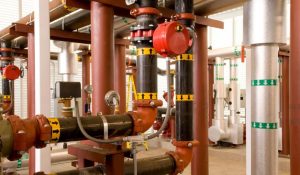
If your system requires a constant flow of liquid at a stable temperature, a recirculating chiller is a solid option.
These are often found in lab environments or for equipment such as lasers, MRI machines, and semiconductor tools. By circulating the same fluid again and again, recirculating chillers offer stable performance and low waste.
HVAC Chillers for Climate Control
In office buildings, hotels, schools, or hospitals, HVAC chillers are commonly used as part of a larger air conditioning setup. These chillers feed cold water into fan coil units or air handlers, which then distribute cool air throughout the space.
HVAC chillers are selected based on cooling load, building size, and local climate. In some cases, they can be paired with heat pumps for year-round climate management.
Eco Chillers and Sustainable Choices
With growing interest in sustainability, many businesses are now turning to eco chillers. These systems focus on energy efficiency and may use natural refrigerants, inverter-driven compressors, or adaptive controls to cut down on energy use.
Eco chillers are particularly attractive for companies looking to reduce operational costs or meet environmental targets. They’re also a smart investment for new buildings or businesses looking to modernise.
Chiller Hire: A Short-Term Cooling Fix
If you’re dealing with an emergency breakdown, seasonal demand, or a temporary production run, chiller hire offers a fast and cost-effective solution. Hired chillers are fully maintained and can often be delivered and installed quickly, helping you avoid downtime.
This option is popular with event organisers, construction firms, and manufacturers undergoing equipment upgrades.
Used and OEM Chiller Units
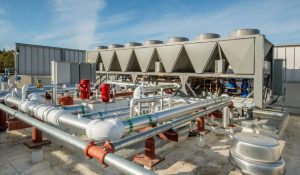
If budget is a concern, you might consider used industrial water chillers or OEM chiller units. Used chillers that have been properly refurbished can still offer years of reliable service at a lower price point.
OEM chillers, on the other hand, are often built for integration into larger machinery or systems and are common in bespoke industrial setups.
Make sure to work with a reputable supplier who can verify the chiller’s condition and provide service support.
Choosing the Right Chiller for Your Needs
When selecting a chiller, ask yourself the following:
- What is the total cooling load? Estimate the total amount of heat your system needs to remove.
- Is water available on-site? This may rule out water-cooled units.
- Is space a concern? Smaller or portable chillers might be more practical.
- What’s the operating environment like? Harsh conditions may call for a more durable model.
- Do you need temporary or long-term cooling? Chiller hire or second-hand units might be suitable for short-term fixes.
It’s always a good idea to consult with a cooling specialist who can evaluate your site, machinery, and day-to-day needs. They’ll be able to recommend a solution that aligns with your goals and future growth.
Final Thoughts
There’s no one-size-fits-all solution when it comes to choosing your industrial cooling solution. Whether you’re running a small workshop or a large-scale manufacturing plant, selecting the right chiller unit can make operations smoother, safer, and more reliable.
From air-cooled systems to heavy-duty industrial models, the right choice depends on your specific circumstances, and it’s worth getting right the first time.


